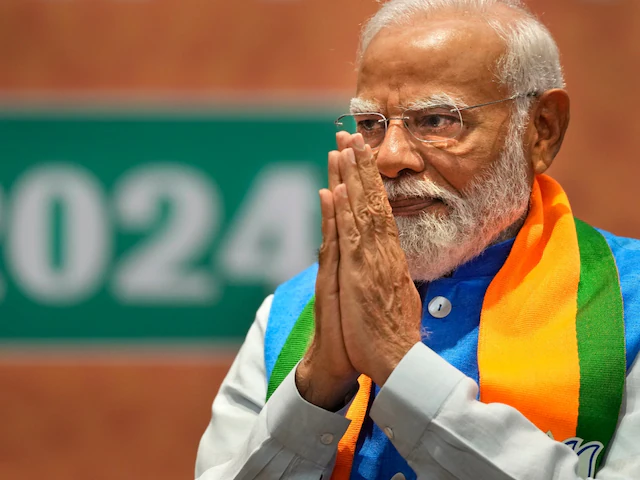Prime Minister Narendra Modi has expressed his gratitude to the people of Arunachal Pradesh and extended his congratulations to the Sikkim Krantikari Morcha (SKM) for their victory in the recent Sikkim elections. In a series of tweets, PM Modi acknowledged the significant support received from the citizens of Arunachal Pradesh and praised the SKM’s success, emphasizing his administration’s commitment to the development of the northeastern states.
Arunachal Pradesh: A Resounding Victory for BJP
In Arunachal Pradesh, the BJP secured a decisive win, reaffirming the state’s support for Modi’s leadership and the party’s developmental agenda. The BJP’s campaign in Arunachal Pradesh focused on infrastructure development, connectivity, and socio-economic growth, resonating with the electorate. Prime Minister Modi expressed his gratitude on social media, stating:
“I thank the people of Arunachal Pradesh for their unwavering support and trust. This victory is a testament to our commitment to the development and prosperity of the state. Together, we will continue to work towards a brighter future for Arunachal Pradesh.”
The BJP’s win in Arunachal Pradesh not only strengthens its political foothold in the region but also highlights the party’s ability to address local issues effectively. The victory is seen as a mandate for continuing the ongoing projects and initiatives aimed at improving the state’s infrastructure and overall development.
Sikkim: SKM’s Continued Rise
In Sikkim, the SKM emerged victorious, marking a significant political shift in the state. The SKM, led by Chief Minister Prem Singh Tamang, has been gaining prominence due to its focus on local governance and development. The party’s victory is seen as a validation of its policies and leadership.
Prime Minister Modi congratulated the SKM and its leadership, recognizing their efforts to bring about positive change in Sikkim. He remarked:
“Congratulations to the Sikkim Krantikari Morcha for their victory in the Sikkim elections. The people of Sikkim have shown their faith in the vision and leadership of the SKM. I look forward to working together for the progress and development of Sikkim.”
The SKM’s win underscores the importance of regional parties in India’s political landscape, particularly in states with unique cultural and socio-economic contexts. The party’s success is attributed to its grassroots approach and its focus on addressing the specific needs and aspirations of the people of Sikkim.
The Broader Implications
The electoral outcomes in Arunachal Pradesh and Sikkim are indicative of the broader political trends in India’s northeastern region. These results highlight the diverse political preferences of the electorate and the growing significance of regional parties and issues in state elections. The BJP’s consolidation in Arunachal Pradesh and the SKM’s rise in Sikkim reflect the evolving dynamics of regional politics, where local governance and development are paramount.
Regional Development and National Politics
- Infrastructure and Connectivity: Continued focus on infrastructure and connectivity remains crucial for the region’s development. The central government’s initiatives to improve road, rail, and air connectivity are likely to receive further impetus.
- Economic Growth: Economic development through sustainable practices, tourism, and agriculture will be key areas of focus. Both Arunachal Pradesh and Sikkim have unique potential in these sectors, which can be harnessed to boost the local economy.
- Cultural Preservation: Respecting and preserving the rich cultural heritage of the northeastern states will continue to be a priority. Both the BJP and SKM have shown an understanding of the importance of cultural sensitivity in their campaigns.
- Security and Stability: Maintaining security and stability in the region, particularly in areas with strategic importance, will remain a critical focus. The central government’s efforts in ensuring border security and regional stability will be pivotal.
Conclusion
The recent electoral victories in Arunachal Pradesh and Sikkim highlight the vibrant and dynamic nature of India’s democratic process. Prime Minister Modi’s acknowledgment of these results underscores the importance of both national and regional efforts in driving development and progress. As the northeastern region continues to evolve politically, the focus remains on addressing local issues, fostering development, and ensuring the well-being of the people. The successes of the BJP and the SKM demonstrate the significance of effective leadership and responsive governance in achieving these goals, setting the stage for a brighter future for Arunachal Pradesh, Sikkim, and the entire northeastern region of India.



